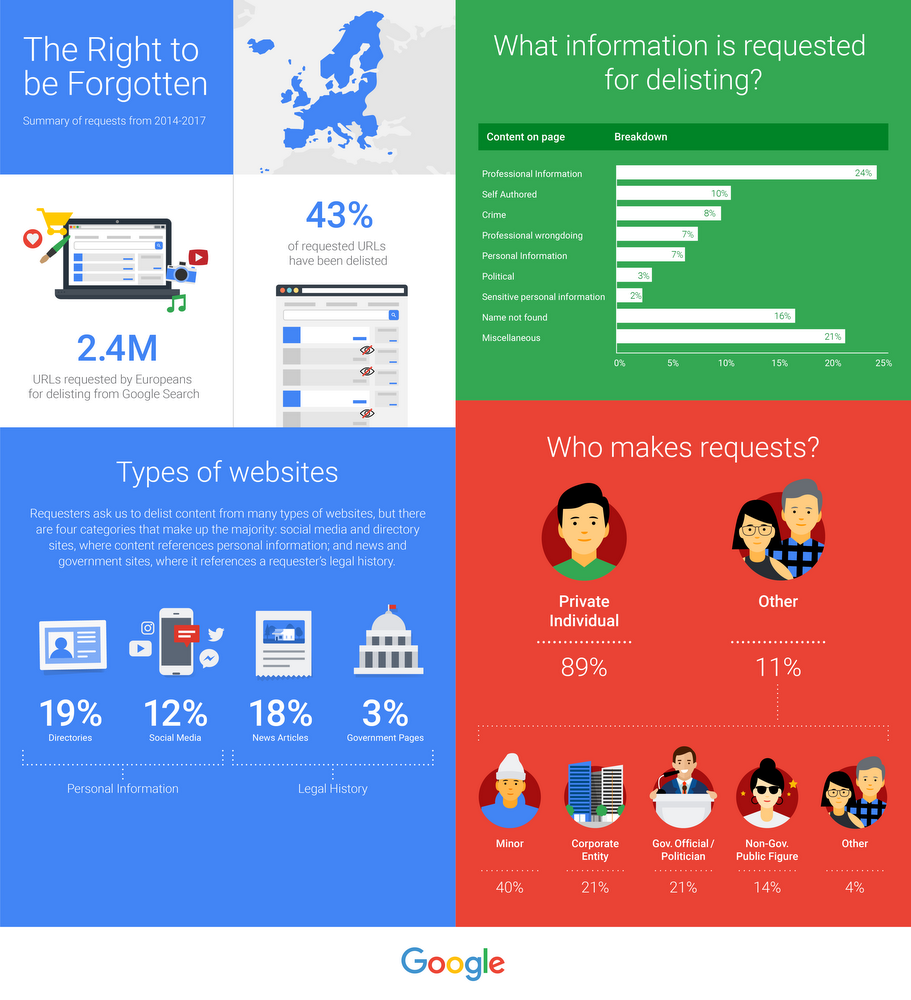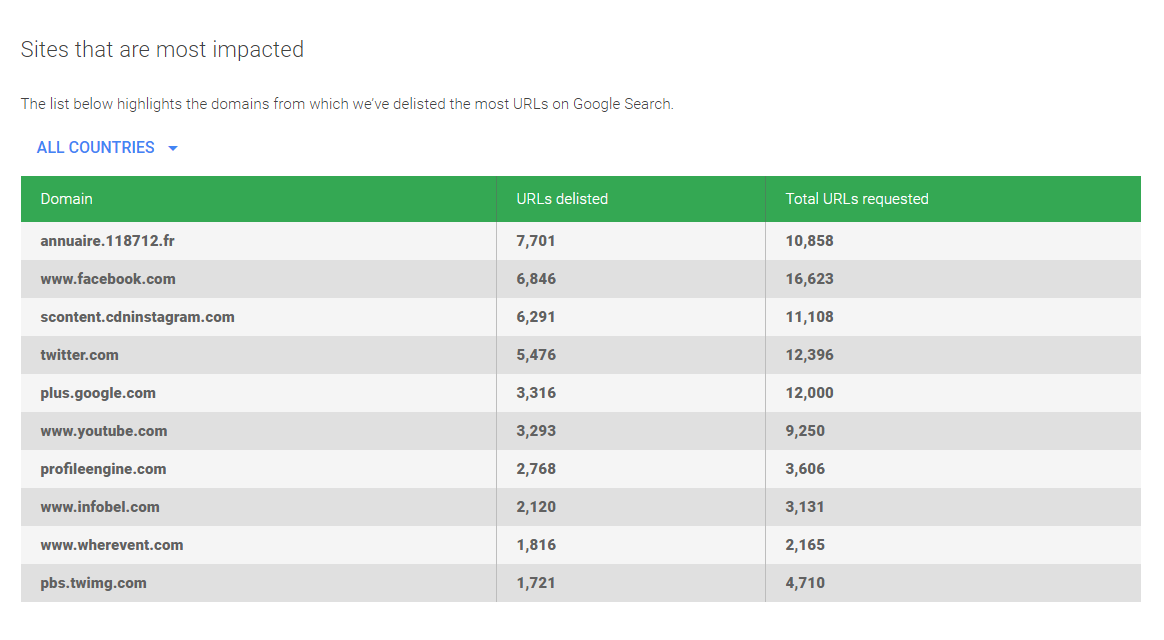
Requesters Ask Google to Delist 2.4 Million URL from it’s Search Result
Europeans are the one who requests Google to remove URL's related to professional information, seld authored, crime, professional wrongdoing, personal information, political, sensitive personal information, and other content on pages.
Under "right to be forgotten" or "right to delist" law, the European Court of Justice allows the Europeans to request the search engine like Google to delist things from the internet on the basis of a person's name, which comes to light in May 2014. After analyzing 3 years (2014 - 2017) of delisting request from the actual date it created, Google updates the new data in the transparency report. See the below image for a clear view.
But before processing these removal request, Google has to check the information for “inaccurate, inadequate, irrelevant or excessive” and make a decision accordingly.
According to the reports gathered, the search engine will remove the content from its search result only if the query related to an individual's name. Google has also delisted some of the URLs from its European search results for a user from countries like France, Germany, Spain, etc.
However, below you'll see a screenshot where the exact count of URL's delisted from a specific domain is arranged in order. Take a look.
For more information about the category of requesters, Categories of websites hosting content requested for delisting, Categories of content requested for delisting, Requested content by website category, Requested URL delisting rate by site category, and other, please check the search removals under European privacy law report from here.
A new research paper called Three Years of the Right to be Forgotten is also released by Google, submitted to the Privacy Enhancing Technologies Symposium for a peer review, says Google.










